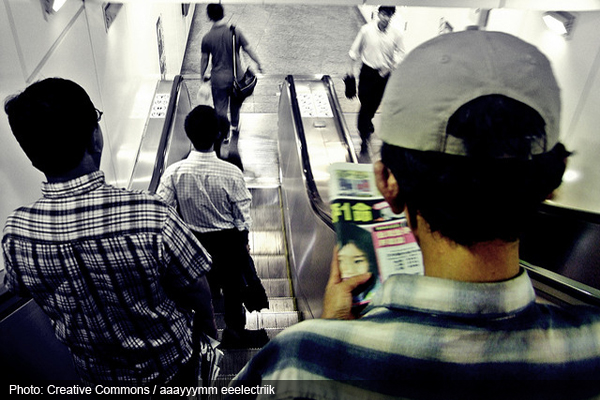
By Luke, Lu Jiqun
In the past few months there have been voices calling for Chinese languages other than Mandarin to be given a more prominent space in the public sphere in Singapore. These included an online petition seeking the “Reintroduction of dialects in local TV/radio”, and an article by Zhou Rongchen in the IPS Commons arguing for the revitalisation of these Chinese languages.
An organic movement to revitalise the use of Chinese languages in Singapore must guard against an imposition of one’s own linguistic assumptions and practices. Some of the proponents make certain assumptions and gross simplifications regarding language in practice and identity that could fall into this trap.
Can Chinese Languages Really Be a “Bridge” to Learning Mandarin?
It may be true that the use of various Chinese languages in the home environment may not impede the learning of Mandarin. However, it is another matter to claim that these languages will automatically act as a “bridge” to acquiring Mandarin. That they belong to a theoretically abstract “language family”, obscures the fact that many of these Chinese languages are mutually unintelligible in speech, with idiomatic expressions that are wholly distinct. More sociolinguistic research is required to determine if the use of any Chinese language at home really does facilitate learning Mandarin.
Limits to State Intervention
There are two problems with the proposal for state-directed revitalisation of Chinese languages through their use in street signs, media or as third languages offered in schools.
First, such state intervention and policy, when taken as a whole, runs the risk of further reinforcing a strong ideological link between language and ethnicity in Singapore. As it is, our current racial policies could be seen to marginalise and shame those who do not fit neat categories of group identity and language use. One wonders about those labelled Chinese (or Hokkien for that matter) who do not understand Tua Sei Kai, and how they would feel about using it to name a MRT station at Great World City, let alone the sensitivities of those who are non-Chinese.
Second, there is a need to be aware that many young Chinese in Singapore today may not feel that there is anything lacking or deficient in their sense of self for not being able to use Chinese languages. Nor do they perceive these Chinese languages and cultural practices to be an intrinsic part of their heritage. After two generations of Mandarin education, many Singaporean Chinese may prefer to stay with the use of Mandarin and English.
Consequently, the movement to revitalise Chinese languages should not seek to represent all Chinese in Singapore, because not all who are Chinese here have the same linguistic needs and desires. It may be more appropriate for individuals or groups interested in promoting Chinese languages to be self-funded and remain a niche movement, rather than for this to be a matter of national policy. This is certainly important if proponents of the movement want to engage other Chinese in negotiation and consultation, so as to avoid unilateral implementation like the Speak Mandarin Campaign.
There is, after all, no state policy that bans Chinese languages from all domains of life. Individuals who do see value in Chinese languages (either serving a social function or of economic value when doing business) will continue to use them daily, regardless of what is taught in schools or not shown in the media. It is one thing to lament the loss of certain ways of life and heritage in Singapore, and quite another to want to re-introduce them into current social practice.
An Evolved Chinese Identity
The fact is that Chinese identity in Singapore is itself layered and complex. According to MOE’s figures, the proportion of Chinese students entering Primary One who speak predominantly English at home, have risen from 36 per cent in 1994 to 50 per cent in 2004. At the same time, surveys (Bokhorst-Heng et al. 2010) suggest that as younger Singaporeans grow up as native speakers of English (i.e., English being the first language they acquire as a child), they will increasingly claim ownership of English, with the language being core to their identity. This is in stark contrast to the government’s stance on English being racially neutral and Mother Tongues being the cultural bind to one’s race and heritage.
It may be that for most Singaporeans, their sense of being Chinese has evolved, and only a minority really do care about the future of Teochew or Hakka in Singapore. Incidentally, the online petition I referred to earlier, did not even garner a thousand signatures more than two months after it was launched.
Chinese in Singapore may now be, linguistically and culturally, more Singaporean than Chinese and happy to so identify themselves.
Luke Lu is pursuing a Phd in Linguistics at the Centre for Language, Discourse and Communication, King’s College London.
